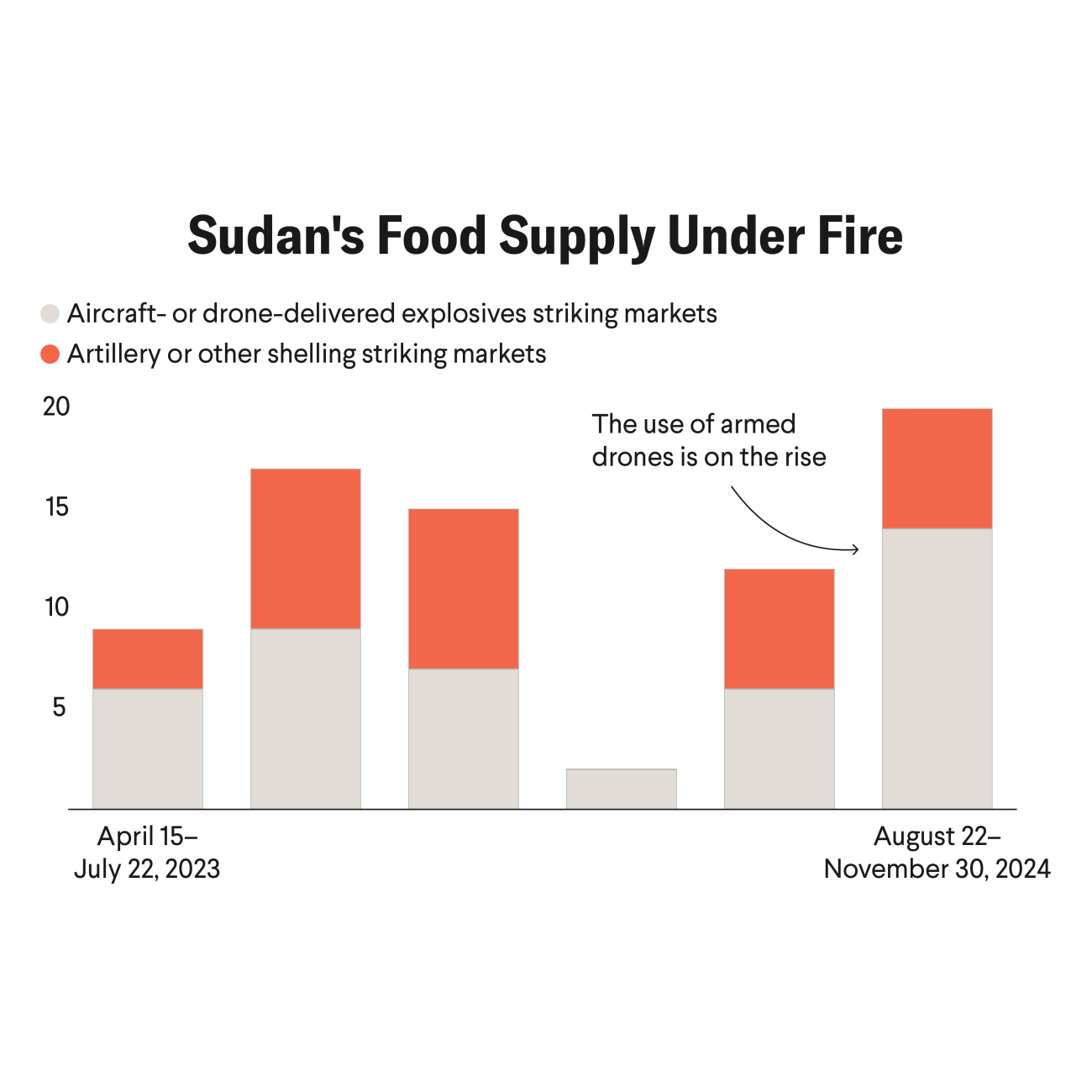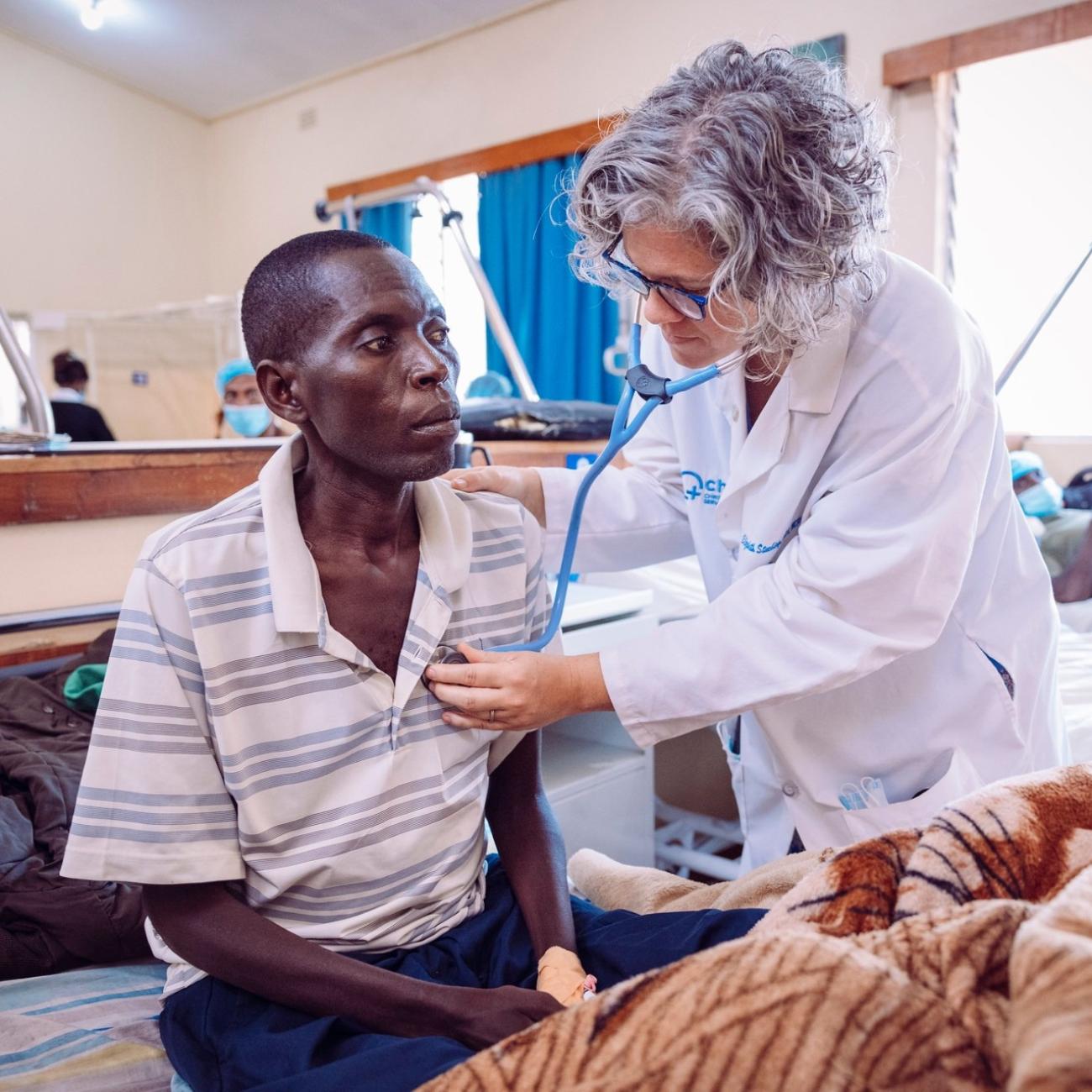Sudan's ongoing cholera outbreak is a devastating consequence of a deeper, systemic crisis exacerbated by years of political instability and ongoing warfare between the Sudanese Armed Forces and the Rapid Support Forces (RSF), a paramilitary group. The conflict, which erupted in April 2023, has precipitated one of the world's most severe humanitarian disasters, resulting in 20,000 to 150,000 estimated deaths and displacing nearly 13 million people. To add to the crisis, aid organizations are no longer able to freely deliver medical assistance because of insecurity and restrictions on movement imposed by warring groups.
The scale of the destruction of sewage systems in urban areas and the decline of sanitation and hygiene services has increased the likelihood of further cholera outbreaks. Sudan requires urgent health-care reforms and longer-term solutions to conflict resolution to effectively address cholera. This crisis not only is a health issue but also reflects deeper sociopolitical fractures within the country.
Sudan's Cholera Crisis
Sudan's Federal Ministry of Health reported the first cholera cases of its latest outbreak in late July 2024. According to World Health Organization (WHO) situation reports, by April 2025, Sudan had recorded approximately 59,000 cases and nearly 1,500 deaths. Cholera bacteria, which spreads through contaminated food or water, thrives in unsanitary conditions. Although preventable and treatable, it poses a serious threat to the millions of displaced Sudanese people living in makeshift shelters in overcrowded refugee camps with insufficient hygiene.
With 17.3 million people lacking access to basic-level drinking water, it is functionally impossible to follow the hygiene practices necessary to curb the spread of the disease. In Gezira State, mass displacement has left people without access to safe water, food, and health care. Conflict-ridden areas have been particularly devastated.
Sudan requires urgent health-care reforms and longer-term solutions to conflict resolution to effectively address cholera
Over the first two months of 2025, UNICEF reported the White Nile region experienced a surge in cholera cases, infecting 2,700 and killing 65. Another 2,700 people contracted cholera and 92 died over the two weeks that followed. Investigators traced the outbreak to a projectile rocket launched by RSF that struck the Rabak power facility on February 16. This rendered water pumps nonfunctional, forcing residents to rely on nonpotable water procured from donkey carts. The intense warfare, which killed hundreds of civilians during this period, left essential infrastructure in ruins and made existing public health gaps even wider.
A Health-Care System on the Brink
Sudan's health ministry has acted quickly to contain the outbreak, but the response has not been adequate given the overwhelming number of cases. In late February, the health ministry, WHO, and UNICEF launched a vaccination campaign in White Nile State that aimed to reach 1 million people. Doctors Without Borders set up cholera treatment centers in El Gedaref—and established a new one farther north in Atbara, yet the demand for services has still outstripped available resources. Patients and their families have been rushing to nearby medical centers—including Kosti Teaching Hospital, where medical staff had to treat some patients on the floor given the lack of available beds. This level of strain is a harrowing yet apt representation of the urgent need for international support and infrastructure development.
Even before the civil war, Sudan's health system was underfunded, fragmented, and plagued by critical shortages in the health workforce, including significant disparities in access, quality, and affordability of care. The country's progress to meet the Sustainable Development Goals had been advancing, but very slowly. The current conflict has erased the limited gains previously made in the public health system and ushered in new challenges. The WHO reports that violent conflict forced 70% of public and private health-care facilities in affected states to close by the end of 2023. Data from the Sudan Federal Ministry of Health also indicates that more than 30% of the public hospitals were no longer in service within a year of the war's start. Conflict and neglect have destroyed Sudan's health-care infrastructure, overwhelming the remaining medical facilities.
The chaotic environment has exposed civilians to indiscriminate violence, widespread famine, and the systematic dismantling of critical health-care infrastructure. Attacks on medical facilities have been deliberate. Reports indicate targeted assaults on health-care workers and the looting of hospitals, which severely hinder the delivery of essential services. Humanitarian agencies face significant obstacles in providing aid due to bureaucratic impediments such as visa delays and conflict-driven restrictions on movement and operations. Women and girls are particularly at risk for sexual violence, which has surged dramatically in this war. Reports documenting rape, sexual slavery, and other forms of sexual violence have emerged throughout the conflict, constituting war crimes and grave violations of international humanitarian law.
Health-care workers in Sudan face subpar working conditions and often lack essential medical treatments, including IV fluids, antibiotics, and oral rehydration salts. Many doctors and nurses have fled the country in response to the violence and instability, worsening the crisis. The remaining health workers are often not paid on time. Political insecurity is disrupting supply chains, hindering the transport of important medical supplies and treatment.
Displacement has also reached unprecedented levels. In Sudan, approximately 8.6 million people are internally displaced—the largest crisis of its kind globally. Approximately 3 million people have fled to neighboring countries, including the Central African Republic, Chad, Egypt, Ethiopia, and South Sudan. However, many asylum seekers face obstacles to entry, forcing them back into the perilous conditions they sought to escape. Overcrowded refugee camps in these neighboring countries struggle to accommodate the influx of new arrivals, and the scarcity of medical resources hinders efforts to contain disease outbreaks, including cholera.
Sudan's ability to track and respond to disease outbreaks is also becoming more limited. The ongoing conflict has disrupted health surveillance systems, making it difficult to deploy appropriate interventions. Community surveillance systems reported 252 deaths as of January 2025, emphasizing the need for strengthened grassroots surveillance systems to help elucidate the impacts of disease outbreaks.
The Need for Urgent Action
Sudan's health-care system requires long-term investment to rebuild. Fundamental reforms could prevent the crisis from worsening and build a system that can resist future disease outbreaks. International collaboration and swift action are needed.
Since 2023, UNICEF has administered 13.7 million oral cholera vaccines, but with national vaccination rates dropping from 85% to 50% because of the conflict, the agency has called for $750,000 in aid to provide a complete emergency cholera response. Organizations such as Doctors Without Borders have called for warring parties to grant unrestricted access for aid delivery. Considering the failed negotiations for a ceasefire on April 15, international leaders need to continue pushing for a resolution.
International organizations, including the WHO and Doctors Without Borders, have mobilized to provide emergency aid, yet access remains a significant challenge. In February, Doctors Without Borders suspended activities in the Zamzam camp in North Darfur, citing an "unacceptable level of risk" after two ambulances were shot at. Doctors Without Borders and other aid organizations have called for a scale-up in international assistance. This call is particularly relevant now given the loss of support from the U.S. Agency for International Development (USAID).
USAID was Sudan's largest humanitarian donor, providing almost 44% of total humanitarian funding, amounting to $126.5 million received this calendar year as of March 10. As a result of the stop-work orders, 335 health facilities in Sudan were disrupted. Water, sanitation, and hygiene programs, which are critical for combating the spread of cholera, have also been abruptly stopped. The lack of stability during the crisis underscores the need for a long-term strategy to rebuild Sudan's health-care system and produce a self-sufficient, conflict-resistant public health infrastructure.
Sustainable, resilient health systems are not a luxury for times of peace—they're a necessary foundation for a country's survival and safety. To save lives, Sudan should act swiftly and decisively to bolster its health system for the current cholera outbreak and beyond.





